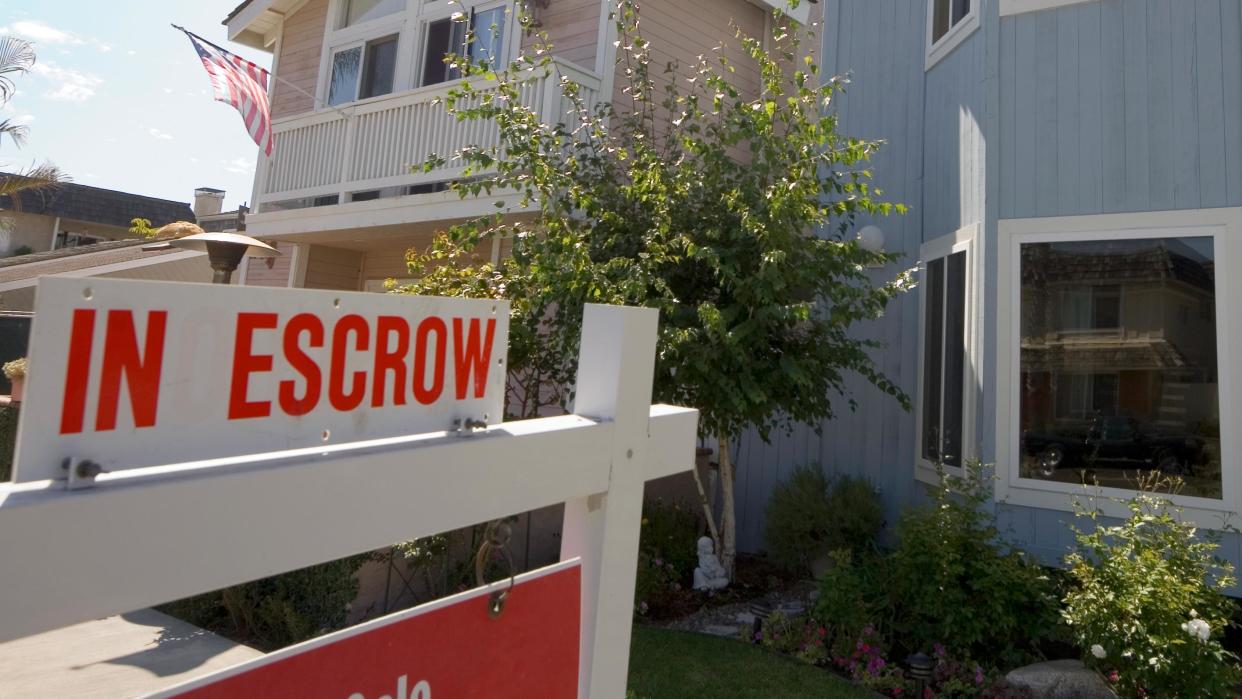What Is Escrow? How It Keeps Home Buyers and Sellers Safe
Dale Taylor/iStock
Buying a house can involve big and scary terms, and “escrow” ranks near the top. So what is escrow, anyway?
The good news is that escrow is not as ominous as it sounds. In the home-buying process, escrow is a financial tool that allows you to set aside important items such as the buyer’s earnest money check and purchase agreement document in an impartial holding area, where it will stay until all of the details are worked out between a buyer and a seller, says Andy Prasky, a real estate professional with Re/Max Advantage Plus in Twin Cities.
The escrow officer is a third party—perhaps someone from the closing company, an attorney, or a title company agent (customs vary by state). How much does escrow cost? That varies too—as well as whether the buyer or seller (or both) pays—with the fee for this service typically totaling about 1% to 2% of the cost of the home.
How escrow works
The third party is there to make sure everything during the closing proceeds smoothly, including the transfers of money and documents. Escrow protects all the relevant parties by ensuring that no funds and property change hands until all conditions in the agreement have been met.
Along the way, proper documentation is filed with the escrow officer as each step toward closing is completed. Contingencies that might be part of the process could include home inspection, repairs, and other tasks that need to be accomplished by the buyer or seller. And every time one of those steps is completed, the buyer or seller signs off with a contingency release form; then the transaction moves on to the next step (and one step closer to closing).
Once all conditions are met and the deal is finalized, the money due to the sellers is transferred to them. Meanwhile an escrow officer clears (or records) the title, which means the buyer officially owns the home.
How escrow protects buyers and sellers
Escrow may seem like a pain, but here’s how it can work in your favor. Let’s say, for example, the buyer had a home inspection contingency and discovered that the roof needed repairs. The seller agrees to fix the roof. However, during the buyer’s final walk-through, she finds that the roof hasn’t been repaired as expected. In this case, the sellers won’t see a dime of the buyer’s money until they fix that roof. Talk about a nice safeguard for the buyer!
Sellers benefit from escrow, too: Let’s say the buyers get cold feet at the last minute and bail on the deal. This may be disappointing to the seller, but at the very least, buyers have typically ponied up a sizable chunk of change for their earnest money deposit. This money, often totaling 1% to 2% of the purchase price of a home, has been held in escrow. When buyers back out with no legitimate reason, they forfeit that money to the seller—a decent consolation for the sale’s failure.
Escrow, in other words, is the equivalent of bumpers on cars, keeping everyone safe as they move forward in a real estate transaction. Odds are, no one’s trying to swindle anyone. But isn’t it nice to know that if something does go wrong, escrow is there to cushion the blow?
Deirdre Woollard and Broderick Perkins contributed to this article.
The post What Is Escrow? How It Keeps Home Buyers and Sellers Safe appeared first on Real Estate News and Advice - realtor.com.



